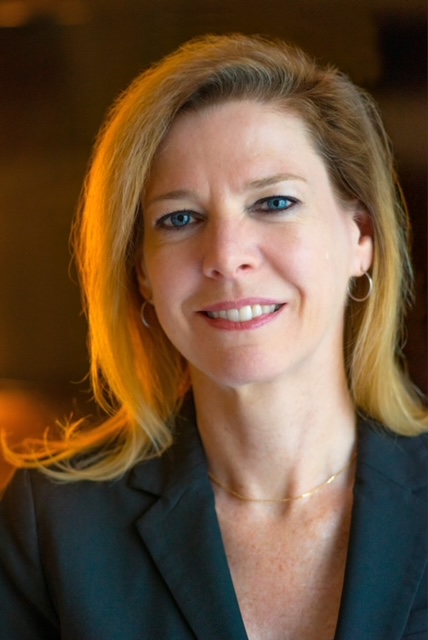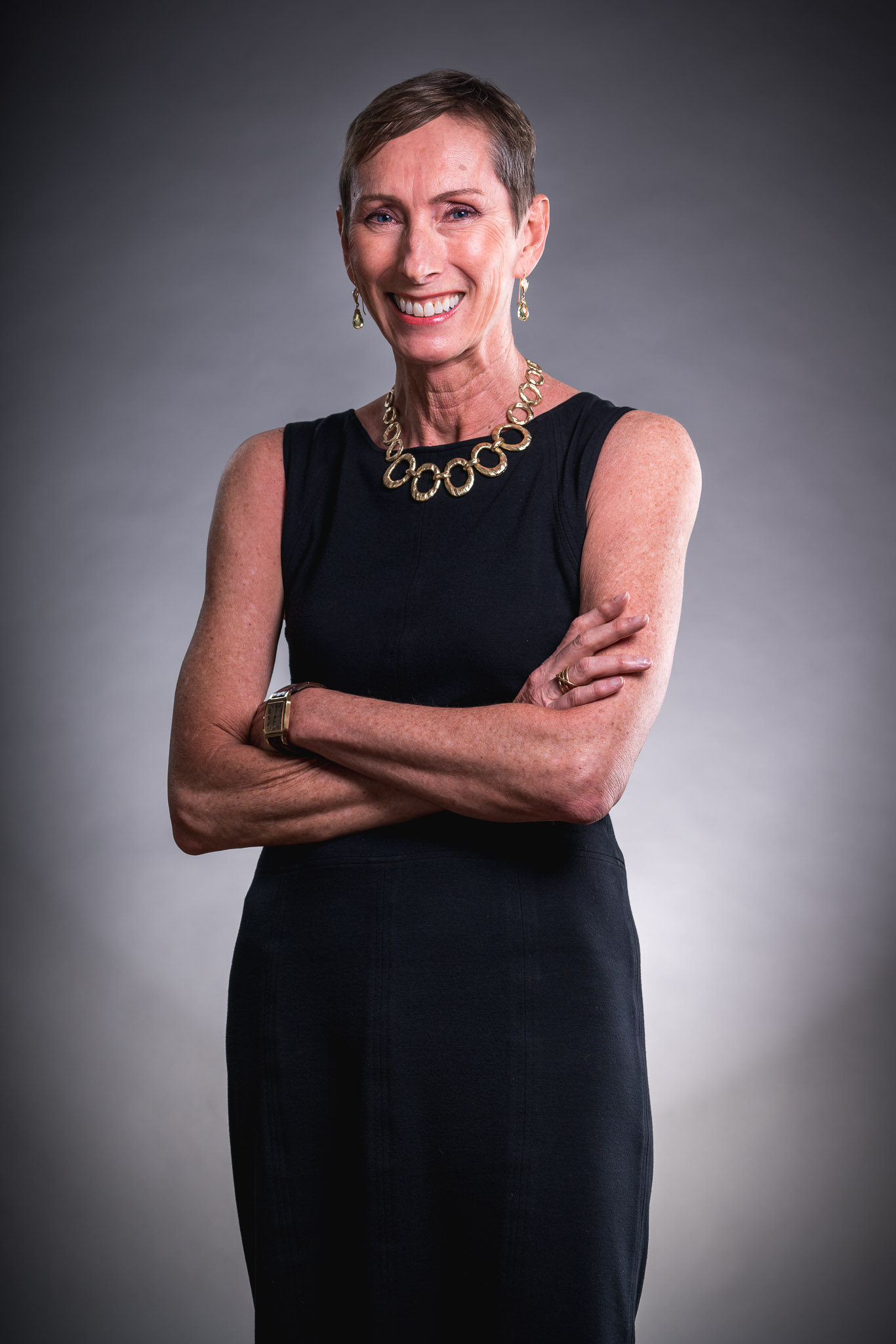We are always eager to hear new ways universities are creating affordable online programs at scale. It is the conversation we never tire of having, and this time, we are talking to colleagues and friends, Georgetown’s Kelly Otter and Coursera’s Betty Vandenbosch. These two leaders from Georgetown University and Coursera recently announced a new online bachelor’s completion program. The program is incredibly competitively priced, at $400 a credit, and scales an on-campus program that serves diverse students. Its most recent cohort was 62 percent students of color and 40 percent military-connected learners. Kelly and Betty agreed to answer our questions about this new program.
Q: The in-person bachelor of arts in liberal studies degree completion program has been an institution at Georgetown since 1974. What factors spurred the decision to bring the program online, and why did you ultimately choose to partner with Coursera to bring it to fruition?
 Kelly: Over the past 20 years, more than 36 million students in the U.S. have enrolled in college and left without receiving a degree or certificate (NSC Research Center). On a national scale this group, served by the School of Continuing Studies’ (SCS) bachelor of arts in liberal studies completion program, is nearly twice the size of all undergraduates currently enrolled in postsecondary institutions.
Kelly: Over the past 20 years, more than 36 million students in the U.S. have enrolled in college and left without receiving a degree or certificate (NSC Research Center). On a national scale this group, served by the School of Continuing Studies’ (SCS) bachelor of arts in liberal studies completion program, is nearly twice the size of all undergraduates currently enrolled in postsecondary institutions.
Georgetown’s own Center for Education and the Workforce provides data and analysis of the impact of this trend, demonstrating the racial inequity of education attainment and earnings, and the personal and public benefits of increasing the number of adults who earn associate and baccalaureate-level degrees. Further, this research speaks to the economic impact (more than $308 billion each year), if the bottom 40 percent of earners achieve college degrees at the same rate as the top 60 percent. We have a moral imperative to provide access and affordability, as well as a quality curriculum and delivery model, to serve this sizable and growing population.
With these factors in mind, SCS made the decision to partner with Coursera to expand the number of students who can benefit from a high-quality, values-based and professionally oriented completion program. It is incumbent upon us to address the need to meet this population of students where they are by changing the delivery model, cost and price structure, and to continue to evolve the curriculum to include both a core of liberal arts courses with professionally oriented concentrations.
We experimented with online offerings in the program and learned that students enrolled in these courses more frequently than the in-person courses. As we researched approaches to deliver the entire program online, as well as the resources available through various possible partners, we decided to work with Coursera because of the design of the platform, the alignment of our respective educational missions and because of the ability of Coursera to serve as a channel to adult students to whom we market the program.
Under the leadership of Michelle Ohnona, the faculty will work with the instructional design teams housed within SCS and the Center for New Designs in Learning and Scholarship to employ research-based pedagogical strategies for high-quality, interactive asynchronous  courses with integrated live sessions with faculty. The combination of asynchronous, self-paced learning and live class sessions is designed to allow adult learners the flexibility they need as they balance the myriad obligations of their professional and personal lives, while making sure that they forge strong connections with faculty and classmates throughout the course.
courses with integrated live sessions with faculty. The combination of asynchronous, self-paced learning and live class sessions is designed to allow adult learners the flexibility they need as they balance the myriad obligations of their professional and personal lives, while making sure that they forge strong connections with faculty and classmates throughout the course.
Betty: We are always looking to expand our partner community to better serve our learners, which is why we are delighted to partner with Georgetown—a globally recognized university. Georgetown’s first program on Coursera will help a growing population of adult learners who need to complete their degrees without disrupting their lives. Students can balance this fully online degree alongside family and work responsibilities without having to move or stop working. Millions of Americans need a program like this, and I am eager to see the many lives this program will transform. When adults earn a high-quality degree, it changes their personal trajectories and lives while also having a positive effect on their families and communities.
Q: Adult learners looking to complete their degree come from all walks of life and often require flexible options coupled with personalized support. How will you meet the diverse needs of remote students while scaling high-quality, high-touch support services like engagement, networking and advising?
Kelly: Student support is of central importance to us. One of Georgetown’s Jesuit values, educating the whole person, has served as a guiding principle as we set out to build this partnership. In addition to scaling up our advising and networking services, we have virtual community spaces that will provide support to students as they work through common difficulties, such as managing financial barriers, balancing caregiving responsibilities and planning for a career after college. We want our students to know that they belong at Georgetown, and our attention to student belonging—from the admissions process to graduation—will reflect that commitment.
Betty: Georgetown partnered with Coursera because we preserve a degree’s pedagogical and experiential quality while scaling it to a global audience. This program strikes the right balance between flexibility and support. The courses are asynchronous and fully online, so students can make their way through each week’s coursework when it fits their schedule. They will also have access to high-touch support services, including academic advising, and can create meaningful connections with fellow students and staff in real-time. Students can build a virtual community with peers while interacting with faculty and TAs in live sessions.
Q: This online bachelor’s program will not require an application fee or deposit—common admissions barriers for prospective students. The price of the program will be significantly less than what we typically see from private, ranked colleges. What was the impetus behind these decisions, and how do you predict they will affect admissions and overall accessibility? Is this a model that you would encourage other university leaders to replicate?
Kelly: We do all of this in the spirit of continuous innovation and the creation of quality, affordable education for all, and our goal is to be part of the solution to mitigate rising costs, enrollment declines, college debt, and to contribute to an increase in the national education attainment goals. One of the greatest strengths of the American education system is its diversity, from its research and land grant institutions to community colleges and enterprising online schools. This community of institutions is rigorously engaged with technology-mediated education, and also with many varieties of strategic partners such as platforms, OPMs and other ed-tech experts to build new, engaging models of undergraduate and graduate programs to meet the needs of many types of learners. We plan to share what we learn from this partnership with other college and university leaders so they can make better informed decisions about their own initiatives on platforms and with other ed tech ventures, and to encourage others to expand access to adult learners through their own innovations.
Betty: “Expanding access to opportunity” is a guiding principle in our decision to partner to bring content onto Coursera. That means making high-quality, world-renowned education more affordable, flexible and accessible. Georgetown’s on-campus program already reaches a very diverse group of students, and on Coursera, we can help scale that across the globe to the growing population of learners who have some college credit but no degree. Plus, the affordable tuition and fully online modality will benefit the many students who, for whatever reason, could not attend the on-campus program.
At Coursera, we’ve collaborated with more than 20 universities to create online degree programs and have seen the power of removing admission barriers. For example, the online master of accounting (iMSA) from the Gies College of Business at the University of Illinois at Urbana-Champaign saw a threefold increase in started applications after removing its standardized test requirements. For Georgetown, the ability for students to transfer more than half their credits is incredible, as they may be able to earn a degree from Georgetown for about $22,000.
A college degree is one of the most transformational credentials a person can earn. I hope that Georgetown’s new program on Coursera serves as both an entry point for learners seeking to complete their degree and expand their opportunities—and a source of inspiration for universities looking to broaden the reach and impact of their own programs.
Source: www.insidehighered.com